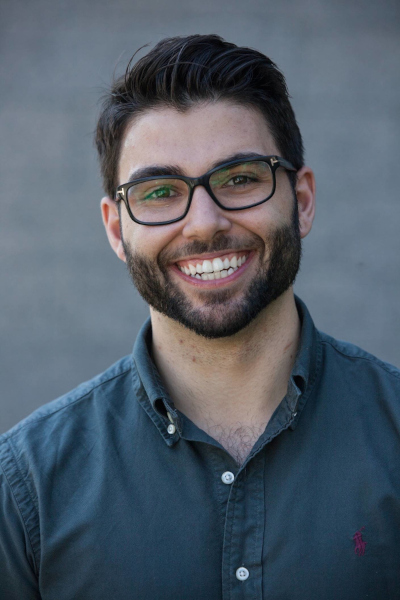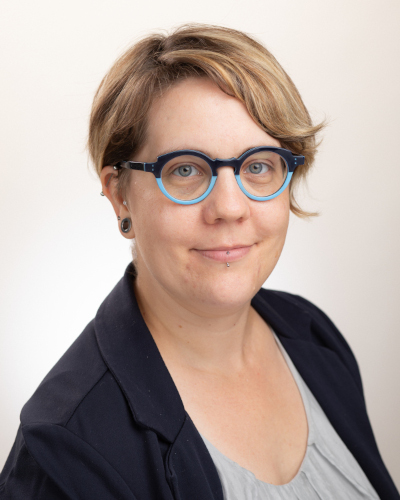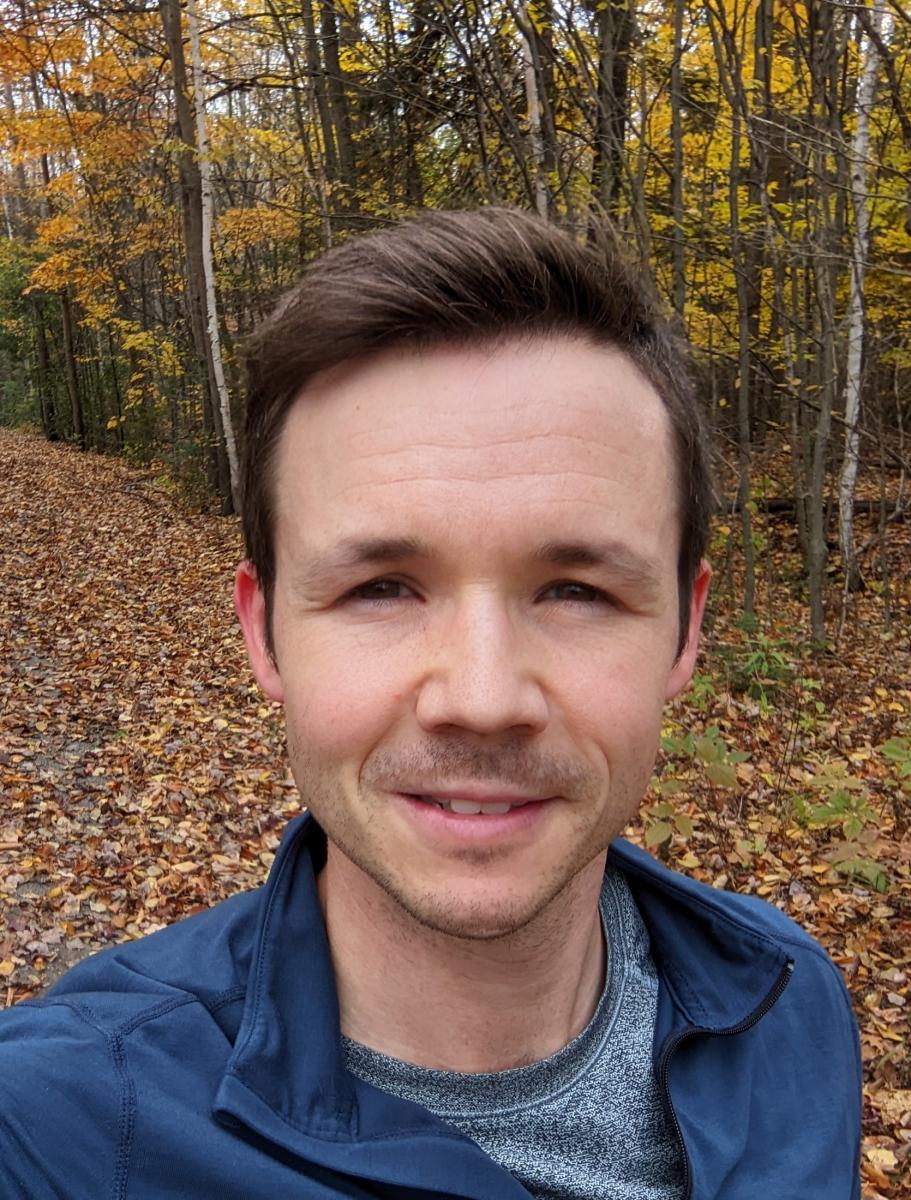We are proud to provide a graduate program that has cultivated the next generation of leaders in medical physics. Our rigorous curriculum, state-of-the-art research facilities, and collaborative learning environment provide the foundation for students to excel in academic, clinical, government and industrial settings.
Our graduates and current students are the heart of our program, and their experiences reflect the quality and impact of the education and training we offer. Below, you’ll find testimonials from our alumni, showcasing their journeys, achievements, and the pivotal role Carleton University has played in their professional development.
We invite you to read their stories and see how our program can help you achieve your career aspirations in medical physics.
Iymad Mansour (MSc 2018, PhD 2023)
Current position: medical physics resident at the Princess Margaret Cancer Centre
Why did you pick Carleton for grad studies?
During my undergrad studies, one of my professors invited a relatively recent graduate of Carleton University to meet with me. They had just completed a residency at the Ottawa Hospital and were starting their career at the same institution. Once I put it all together that Carleton had a great medical physics program and provided the change in scenery that I was looking for, I was fully interested in applying. After applying, I was offered a really interesting project to work on at the Ionizing Radiation Standards group at the National Research Council, and I decided to take the plunge.
After completing my MSc, I was pretty hooked on the field and knew I was going to do a PhD but the only question was where. I ended up staying at Carleton but worked in a different group (my MSc supervisor and the group I worked with were truly great, but I wanted to explore a different area of research for my PhD). I think a big factor that influenced my decision to stay at Carleton instead of taking an offer I had elsewhere was the confidence I had both in the program and in my prospective PhD supervisor. I couldn’t have known what was going to happen in the coming years (e.g., I started my PhD in 2018, and unbeknownst to anyone, a global pandemic was on the horizon…), but I had a feeling that whatever came my way, I’d be sufficiently supported to overcome it (and yes, I was right!).
What drew you to Ottawa? What was your favourite thing about Ottawa?
Ottawa is super unique, and I really enjoyed the time I spent there. The integration of nature within the city was something I really enjoyed. I took up cycling while living in the city, and I have many fond memories of both biking to work and enjoying my leisure time in the hills of Gatineau Park.
Furthermore, I think I was able to form a really nice personal network in the city. Although I don’t have any immediate family within the city, I never felt “isolated” while living there. The community within Carleton, the Ottawa Medical Physics Institute (OMPI) and other personal circles I had were quite impactful for me personally.
Give an example of something that someone might not know about Carleton’s medical physics program.
I think the uniqueness of the program is something often missed by those unfamiliar with it. My impression is that for most, medical physics just means clinical medical physics. Yes, this of course exists in Ottawa, but it is only one component of a much larger program/community. There are some of the obvious things to point to, such as the quite unique government labs which are part of the community within Ottawa medical physics, but also the more academically oriented individuals working within the university have quite unique research topics that aren’t quite replicated elsewhere.
Alexandra Bourgouin (PhD 2020)
Current position: Research Associate in the Radiation Environment and Security group which is part of the Metrology research center at the National Research Council of Canada.
Why did you pick Carleton for grad studies?
For my PhD, I initially shortlisted cities, including Ottawa, where I could stay close to relatives yet pursue full-time studies in English as I knew I needed to improve it (I’m from Quebec). I contacted a few professors working in dosimetry and received a positive response from an adjunct professor at Carleton University with a very interesting project. It was unique, offering me the chance to enhance my experimental skills and delve into simulations within the same project.
I also want to mention that people at Carleton/OMPI are particularly active in promoting inclusivity and diversity. Addressing the gender gap in STEM is a genuine concern for me.
What drew you to Ottawa? What was your favourite thing about Ottawa?
One aspect I particularly enjoyed about Ottawa was the availability of services in French. If you like festivals, museums or board game cafes, this is the city for you! Additionally, there are fantastic cycling paths everywhere, suitable for both road and mountain biking.
Give an example of something that someone might not know about Ottawa.
Ottawa has a diverse population which leads to some great food opportunities! There's also a thriving queer community, social dance and music scenes. Not only that, but you can experience both nature and the city at once! Living downtown in a city of a million inhabitants, you can still be less than half an hour away from a conservation park in the National Capital Region.
How did your Carleton education prepare you for your current position?
Carleton University was the only institution that provided me the opportunity to pursue my graduate studies in a national metrology laboratory—an experience that significantly prepared me for my postdoc at the German national metrology institute (PTB) and my current position at NRC.
Spencer Manwell (PhD 2020)
Current position: Imaging Physicist and Software Developer at Convergent Imaging Solutions
What are you doing now?
I am a software developer at a small Canadian medical device manufacturer. My work primarily involves design and implementation of software solutions for our nuclear medicine and radiology workstation. In addition to development I am also involved in quality management, regulatory matters, research and development and training new team members. Since starting in 2020, I helped bring a new product to Canadian and US markets and I am overseeing our efforts to gain regulatory clearance in the European Union.
How did your Carleton education prepare you for your current position?
My research area was in nuclear medicine imaging so a great deal of the technical and clinical experience I gained served as subject matters expertise within my current position. Apart from hard skills, the program at Carleton was designed to also give students an opportunity to enhance their soft skills like communicating ideas clearly and effectively.
Why did you pick Carleton for grad studies?
The medical physics stream was not a field that I was familiar with when I was completing B.Sc. and M.Sc. degrees. While learning about projectile motion in the first of undergrad studies in physics - I never imagined that physicists play an important role in human health! After completing a master's program some of my connections led me to professional opportunities in the field of health physics and radiation protection. It was that experience that really piqued my curiosity about the field of medical physics. So I started researching medical physics programs. Carleton stuck out to me as its Medical Physics PhD program had been CAMPEP accredited for some time at that point - which is very important for those looking at moving into a clinical setting post-graduation. When I looked more closely at Carleton's program details, I was struck by the range of research areas that it had to offer. These two aspects really solidified Carleton as my choice.
What drew you to Ottawa? What was your favourite thing about Ottawa?
The city of Ottawa appealed to me as I grew up in the Ottawa valley and all of my family were still there. After spending more than a decade in the Toronto-Hamilton area, starting at Carleton really felt like coming home. Apart from that Ottawa has a lot to offer for anyone interested in outdoor activities and history.
Give an example of something that someone might not know about Ottawa/Carleton/OMPI.
OMPI is composed of members spanning clinical domains like radiation therapy, nuclear medicine, and radiology (neurological, cardiac, oncology, and muskolo-skeletal). It also includes members in the public domain looking at metrology focusing on ionizing radiation standards measurements and folks performing environment assessment. OMPI is also home to world leaders in computational radiation transport modeling and laser-guided cancer detection. I would challenge anyone to find a single medical physics program anywhere that has the same breadth and depth as OMPI.